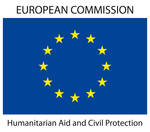The project is a reaction to a natural disaster called dzud, which in the first half of the year 2010 left many pastoral families without livelihoods.
It strives to permanently improve the situation of Mongolian herdsmen, who depend on their herds and also addresses the quality of pastures and climate/weather development. The project’s goals are prevention of risks of another disaster and support of sustainable pastoralism which takes into account local conditions for cattle breeding.
The term dzud means an exceptional situation during winter or spring when livestock have no access to food and/or is exposed to extremely low temperatures, which leads to mass losses. The situation is usually caused by several unfavorable factors, whose impacts are deepened by their mutual combination. In winter 2010, problems were caused by above-average snowfall (the layer of snow prevented the animals’ access to fodder), unusually strong freezing and by dry weather in the summer before, which meant that the herdsmen were unable to gather sufficient fodder supplies for winter.
During the winter of 2009/2010, 9 million livestock died, this represents about 21 % of the overall number of 44 million before the catastrophe. However, the losses did not take place evenly, which meant that there were some unaffected areas, whereas in other areas the losses were huge.
In Mongolia, livestock losses can have a fatal impact on the inhabitants’ economic situation and their food self-sufficiency. Cattle breeding still represents about 20 % of the country’s GDP and is the main source of subsistence for one third of the inhabitants. These pastoral families’ existence is put at risk by the loss of their herds.
Caritas CR implements the project in eight “sums” (districts) of the Ovorhangai province in central Mongolia, which is one of the most seriously affected by the dzud.
Within the framework of the project, Caritas CR provided hay and fodder and distributed it to the selected sums. It was divided among 200 pastoral families, which will use it for feeding animals born in winter, whose survival in winter months (when animals cannot graze outside due to the climate) would be otherwise endangered. Luceme seed will be distributed in spring, which will enable the herdsmen to create sufficient hay supplies for the next winter.
Storehouses are being built in four of the sums, which will enable timely provision of hay and fodder for the winter. Herdsmen communities will be able, thanks to the storage room, to buy supplies in summer, when the prices are lowest.
The project also aims to decrease the risk that a catastrophe with similar repercussions will take place again in the future. In this respect, it is crucial to inform the herdsmen, who are often not aware that, by using some traditional cattle breeding procedures, they contribute to pasture devastation and increase their own vulnerability to dzud. Caritas CR thus provides not only material aid, but also organizes training for herdsmen and local government representatives in cooperation with a local partner organization „Environment and Security Center of Mongolia”. The training is focused on dzud risk prevention, sustainable pastoralism and on the ways of coping with the impact of natural disaster. About 3600 herdsmen and 60 representatives of local government will take part in the training.
Project title: Improvement of Food Situation of Persons Dependent on Cattle Breeding Living in Areas with Increased Risk of Dzud
: Improvement of Food Situation of Persons Dependent on Cattle Breeding Living in Areas with Increased Risk of DzudImplementation period: August 2010 to May 2011
Sources of funding: Headquarters of European Commission for Humanitarian Aid and Civil Cooperation (ECHO)








